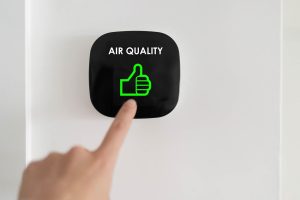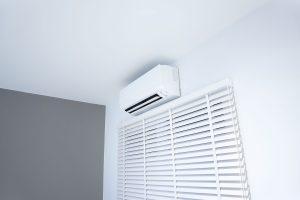How to Keep Your Heating System in Peak Condition for Winter 2023
With the arrival of chilly temperatures, you may have already switched on the heat in your home. But that doesn’t mean it’s too late to make sure your system is operating at peak performance with a check-up by a qualified HVAC company.
Routine maintenance can not only address problems you may have already noticed, but a professional HVAC provider can identify potential future issues that can be costly.
Signs That Your System Needs Maintenance
You may have noticed signs that indicate your system needs attention but chalked them up to “normal wear.” But, while these things may seem minor, correcting them now can maximize the efficiency of your heating system and make your home more comfortable.
Some of the signs that your system needs maintenance include:
Weak airflow from vents. Weak airflow could be caused by blocked ducts, malfunctioning fans or clogged filters – things that put a strain on your heating system.
Unusual noises. That rattling and banging you hear isn’t normal. It might be a sign of loose or damaged parts.
Fluctuating temperature. If some rooms are warmer than others, it could mean that there is a problem with ductwork, your thermostat or a heating element.
Increased energy bills. Energy bills that seem higher than usual often are a sign of a problem. Increased costs beyond expected rate increases from your energy provider could be the result of anything from a malfunction in a furnace component to a dirty air filter. An HVAC expert can inspect your system to help pinpoint and correct the source of these increases.
Things You Can Do to Maintain Your System
Although an HVAC expert is your best resource for keeping your heating (and cooling) system in top shape, there are things you can do yourself, including:
Change the filter. A dirty filter is a top reason HVAC systems fail. Keep a supply on hand and replace it every 30 days. Consider a filter with a MERV (Minimum Efficiency Reporting Values) rating of 13 or higher. A higher MERV rating means cleaner air and better HVAC performance.
Conduct a visual inspection. Check out your furnace before and during the heating season. Make sure there is a 3-foot clearance around the unit to maintain airflow. If your unit is outside, be sure to clear any snow that accumulates around it. Also inspect your ducts and vents to make sure nothing is blocking these openings.
Check your thermostat. Your thermostat’s performance can be compromised by malfunctioning sensors, failed computer chips and batteries and loose wires, all of which can compromise the calibration and affect indoor air temperature. If your home seems cold, check the indoor temperature using an accurate thermometer. If there is a difference of more than +/- 5 degrees and your furnace is operating correctly, check the thermostat battery or recalibrate it.
While performing these steps is important to maintaining your heating system, it’s equally important to schedule regular maintenance from a professional HVAC company that has the expertise to detect problems you may not see, such as potentially deadly carbon monoxide leaks. If you live in Lebanon County or surrounding areas, a company such as Precision can provide routine maintenance and other services to keep you warm throughout the winter.
You May Also Like

Air Purification Systems and Other Options for Keeping Your Indoor Air Clean
The air you breathe in your home, office and other indoor spaces has a major impact on your overall health. An air…

Why Service Is Important When Hiring an HVAC Company
When hiring a company to install or repair your home or office cooling or heating system, the level of service the company…

What You Need to Know about Ductless Mini-Splits for Cooling and Heating
Ductless mini-splits are a flexible alternative for cooling and heating individual rooms or zones within your residence. Unlike traditional HVAC systems, they…
